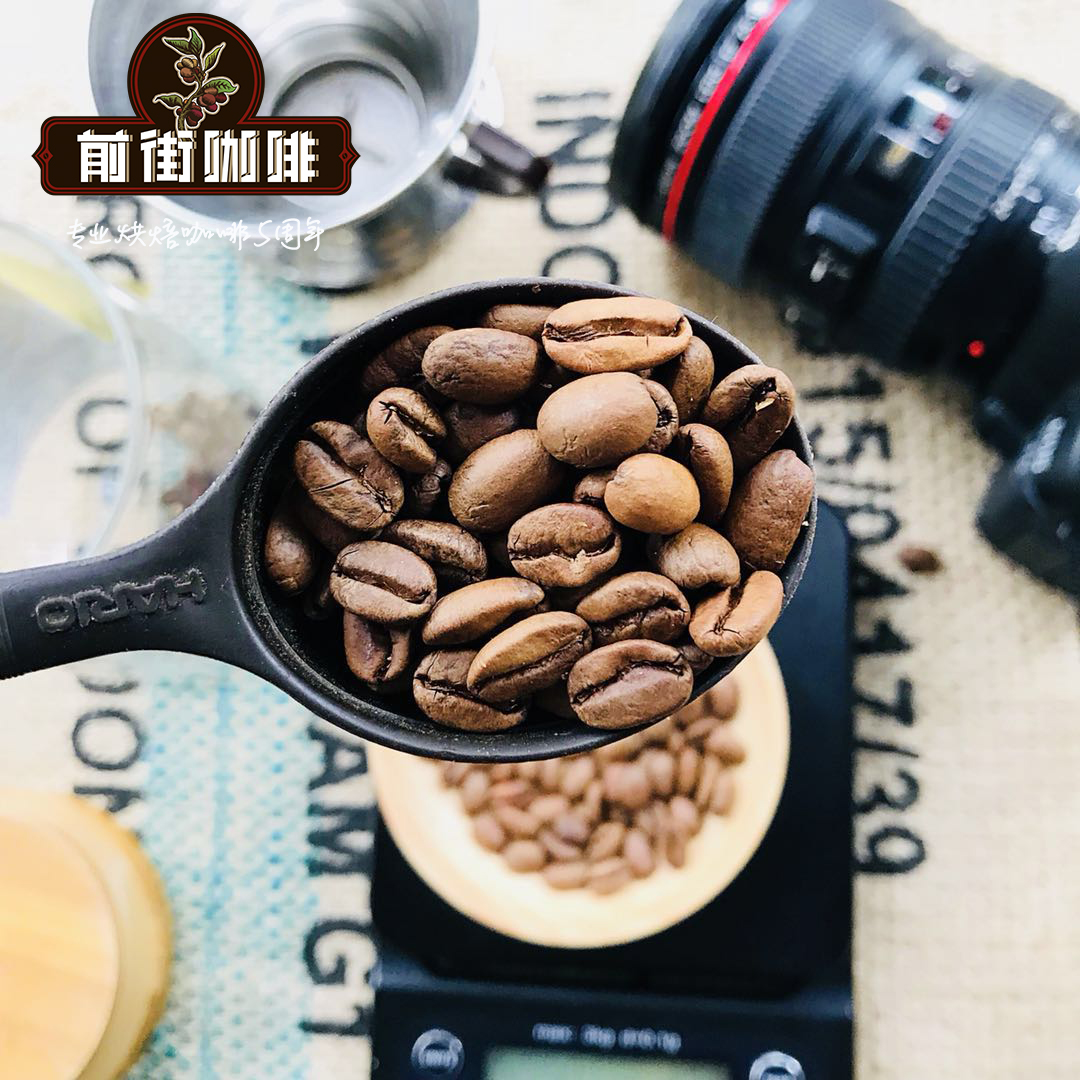Talk about the current situation of coffee in China

Professional coffee knowledge exchange more coffee bean information please follow the coffee workshop (Wechat official account cafe_style)
Coffee shops, homes, offices and a cup of coffee per person have become a common sight in cities in eastern China. With the rapid development of economy, more and more people drink coffee. In addition to providing convenient take-out and stable quality of international coffee brands, independent coffee shops focusing on the drinking environment and shop characteristics are also gradually emerging. At the same time, China has also begun to produce high-quality local coffee. This popular drink around the world is catching up with the tea-drinking culture with a long history, and its charm should not be underestimated.
Coffee has entered the daily life of Chinese people, and the coffee industry has become one of the business opportunities that can not be ignored.
The population of coffee drinkers in China has increased significantly in a short period of time, mainly in the eastern first-tier cities. In 2016, China drank an average of three cups of coffee per person per year, according to data provided by market research firm Euromonitor International. Compared with 377 cups of coffee for Koreans, 363 cups of coffee for Americans and 250 cups for Britons, it is a far cry, and it also means a lot of room for growth. Both Starbucks and Dunkin Donuts are ambitious and actively plant flags on the Chinese coffee map.
In a Bloomberg report, Joseph Reiner, head of the coffee department of Cofco International, said: "Chinese people are gradually getting into the habit of drinking coffee at home and at work. Between 2021 and 2022, China's middle class population will reach 450 to 600 million. Starbucks, which has been in China for nearly 20 years, has long seen the growth of this class. CEO Kevin Johnson said in a Reuters report: "the rapid growth of the middle class, resulting in more business opportunities; the market will become bigger." He also expects Starbucks to expand from the current 2800 stores to 10,000 stores in the next 20 years, close to the domestic market in the United States.
Not only Starbucks, but Donuts, a chain of doughnuts, also plan to do so. Even if it failed to enter the Chinese market in the past, with only 34 strongholds across the country, Donndole still drew a blueprint for setting up 1400 stores within 20 years. "among the overall beverage consumers, although there are relatively few coffee drinkers, they are growing rapidly and are expected to surpass tea consumers. Nigel Travis, chief executive of Donndole, said.
Independent coffee is also on the rise.
In addition to big brand expansion, Yu Limin, an analyst at Ori International, also makes another observation. "We have noticed the rise of many small brands and independent coffee, and the explosive growth in the number of registrations. "the rise of independent coffee shops in China, to some extent, also means that coffee shop chains can no longer fully satisfy Chinese consumers. They have begun to look for coffee that is different from that offered by chain stores.
According to the magazine, a coffee shop owner named Max earned a place in Beijing by making coffee with a special flavor. Combine blue citrus wine (blue cura?ao), peach, mango and rose with espresso, milk and sugar to create drinks with complex flavors. The strategy was successful: Max's coffee shop moved twice because of lack of space, but customers were so loyal that they followed him wherever he moved.
Quality improvement of Coffee beans in China
China produces 138,000 metric tons of coffee beans a year, about as much as Kenya and Yalsa have produced for many years. Although the output is high, it is difficult to directly associate coffee with China; this is because the quality of coffee beans in Yunnan was not high in the past, mostly as the raw material of instant coffee. But in the eyes of Samuel Gurel, chief executive of Torch Coffee Roasters, who has long followed the technology of coffee farmers, China has been able to produce high-quality coffee beans.
Together with a team from the non-profit organization Coffee Quality Institude1, 40 coffee treatments were tested on a piece of donor land in Yunnan. According to Coffee Quality Insutude's research, low altitude provinces are more suitable for dry treatment (dry processing), medium altitude is suitable for honey treatment (honey/pulped processing), and high altitude beans are suitable for washing (washed processing). The coffee beans they grow are ideally dried and shelled.
Note 1:Coffee Quality Institude is a non-profit organization that helps coffee farmers produce high-quality coffee beans and improve their quality of life internationally.
Specific treatments were made according to the characteristics of beans at different elevations, and the results were very sweet. "the cup test score of coffee beans has risen from 80 to 86, which is really exhilarating. It is rare for Asian coffee beans to get such a high score. They were surprised to learn that the beans were from Asia because they contained a rich fruity aroma rarely seen in Asian beans. With the improvement of the quality of coffee beans, we have reason to raise the selling price. "
The coffee process in China and Taiwan is similar.
The current evolution of coffee in China is actually similar to the road taken by Taiwan. Teacher Han Huaizong, who carefully studied coffee and wrote books such as "Fine Coffee" and "long live Coffee in Taiwan: eight major producing areas and 54 high-quality estates in Taiwan that fascinate coffee masters," in his book "learn from Coffee Masters," clearly explain the history of coffee in Taiwan.
Taiwan is greatly influenced by the coffee culture of Japan and the United States. During the period of Japanese colonial rule, coffee was introduced and planted as an enterprise, which established the coffee planting industry in Taiwan. During the period of US aid, the culture of instant coffee brought about by the garrison greatly influenced Taiwan, that is, soluble coffee was the mainstream. At the same time, coffee shops such as Fengda Coffee choose Japanese-style slow-fried baked beans and siphon brewing, showing low acidity and sweet and bitter coffee. American instant coffee and Japanese re-roasted coffee coexist in society and have their own supporters.
In the 1990s, smaller coffee makers began to introduce their own bean roasters and move towards their own baking. In 1998, Starbucks displayed a large number of shops in Taiwan, establishing its position as the leader of coffee. During this period, many coffee players, mainly college students, began to bake beans themselves, adding a variety of features to the boutique coffee. After the millennium, Taiwan has officially entered the third wave of coffee, emphasizing personal characteristics with light roasting, local style, flower drawing, cup testing, and so on. The number of shallow-roasted coffee shops has increased, and self-baked bean coffee shops have become more prosperous, and even convenient supermerchants can easily buy coffee.
With the high density and variety of coffee shops in Taiwan, the professionalism of coffee professionals has skyrocketed, and the quality of locally grown coffee beans has also improved. And Chinese consumers who drink coffee now have changed from instant coffee to chain coffee. Coupled with the promotion of boutique coffee, Chinese consumers can drink local high-quality coffee, which is just around the corner.
In January 2008, Chinese officials will hold the first Coffee Forum in Pu'er City, Yunnan Province, where about 300 coffee makers will share coffee trends, brewing techniques, coffee quality, and so on. Whether it is the expansion of development or boutique, China's coffee scenery is bound to become more and more wonderful.
Important Notice :
前街咖啡 FrontStreet Coffee has moved to new addredd:
FrontStreet Coffee Address: 315,Donghua East Road,GuangZhou
Tel:020 38364473
- Prev

The hometown of mocha coffee-Yemen
Professional coffee knowledge exchange more information about coffee beans Please follow the coffee workshop (official account cafe_style of Wechat) when it comes to Yemeni coffee, it is necessary to mention "mocha". Everyone has heard of "mocha coffee". What exactly is "mocha"? There are many answers to this question. Some people say that mocha is a certain place of origin, and some people remember that mocha is sweet chocolate coffee.
- Next

Dangerous drinks: how Coffee creates a Culture of Resistance
Professional coffee knowledge exchange more information about coffee beans please follow the coffee workshop (Wechat official account cafe_style) Coffee as a "Drug" David. In his book five hundred years of Addiction, David T. Courtwright tries to define the English word "Drug" as a neutral concept: "addiction", that is, all addictive or addictive.
Related
- The ceremony is full! Starbucks starts to cut the ribbon at a complimentary coffee station?!
- A whole Michelin meal?! Lucky launches the new "Small Butter Apple Crispy Latte"
- Three tips for adjusting espresso on rainy days! Quickly find the right water temperature, powder, and grinding ratio for espresso!
- How much hot water does it take to brew hanging ear coffee? How does it taste best? Can hot water from the water dispenser be used to make ear drip coffee?
- What grade does Jamaica Blue Mountain No. 1 coffee belong to and how to drink it better? What is the highest grade of Blue Mountain coffee for coffee aristocrats?
- What are the flavor characteristics of the world-famous coffee Blue Mountain No. 1 Golden Mantelin? What are the characteristics of deep-roasted bitter coffee?
- Can I make coffee a second time in an Italian hand-brewed mocha pot? Why can't coffee be brewed several times like tea leaves?
- Hand-brewed coffee flows with a knife and a tornado. How to brew it? What is the proportion of grinding water and water temperature divided into?
- What is the difference between Indonesian Sumatra Mantinin coffee and gold Mantinin? How to distinguish between real and fake golden Mantelin coffee?
- What does bypass mean in coffee? Why can hand-brewed coffee and water make it better?

